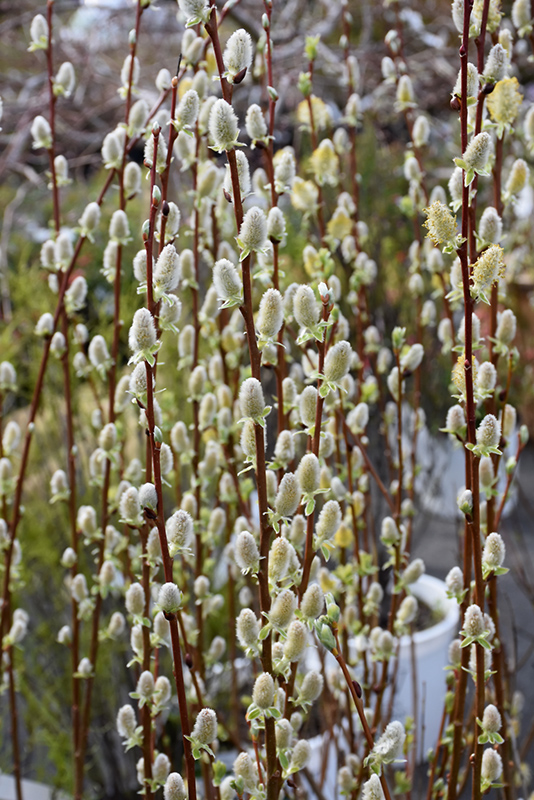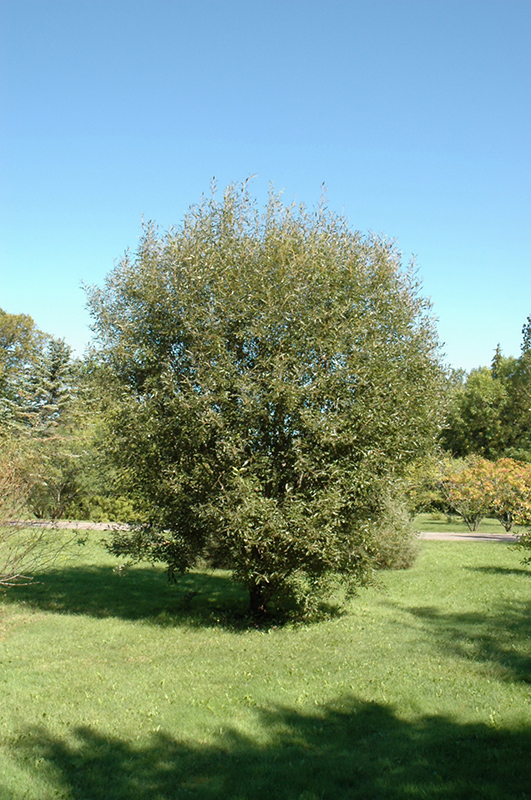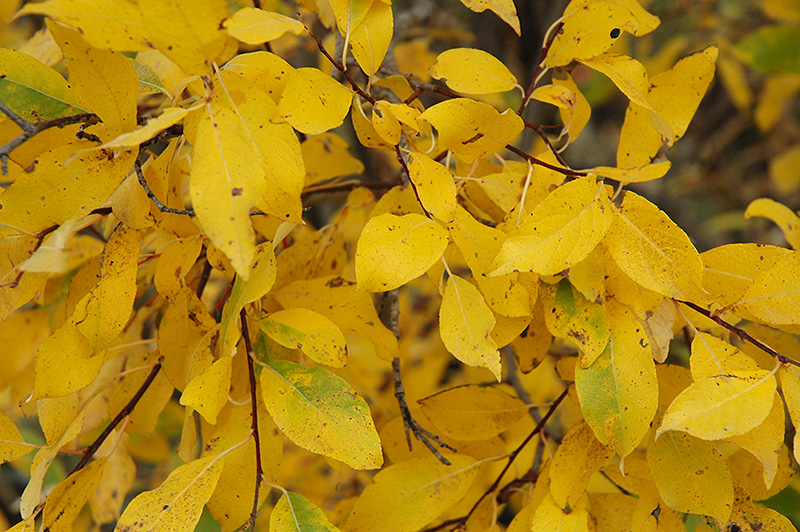
Plant Finder
Height: 18 feet
Spread: 20 feet
Sunlight:
![]()
![]()
Hardiness Zone: 2
Description:
Our own native pussy willow, featuring soft, fuzzy catkins in late winter, one of the first plants to bloom in northern climates, heralding the arrival of spring; upright and spreading habit, forms a small multi-stemmed tree; quite versatile and hardy
Ornamental Features
Pussy Willow features delicate tan catkins along the branches from late winter to early spring before the leaves. The flowers are excellent for cutting. It has bluish-green deciduous foliage. The pointy leaves do not develop any appreciable fall colour.
Landscape Attributes
Pussy Willow is a multi-stemmed deciduous shrub with a more or less rounded form. Its average texture blends into the landscape, but can be balanced by one or two finer or coarser trees or shrubs for an effective composition.
This shrub will require occasional maintenance and upkeep, and is best pruned in late winter once the threat of extreme cold has passed. Gardeners should be aware of the following characteristic(s) that may warrant special consideration;
- Disease
Pussy Willow is recommended for the following landscape applications;
- Accent
- Mass Planting
- Hedges/Screening
- Naturalizing And Woodland Gardens
Planting & Growing
Pussy Willow will grow to be about 18 feet tall at maturity, with a spread of 20 feet. It tends to be a little leggy, with a typical clearance of 3 feet from the ground, and is suitable for planting under power lines. It grows at a fast rate, and under ideal conditions can be expected to live for 40 years or more.
This shrub does best in full sun to partial shade. It is quite adaptable, prefering to grow in average to wet conditions, and will even tolerate some standing water. It is not particular as to soil type or pH. It is somewhat tolerant of urban pollution. This species is native to parts of North America.
This Plant Library is intended for informational purposes only, and is not an online store.


